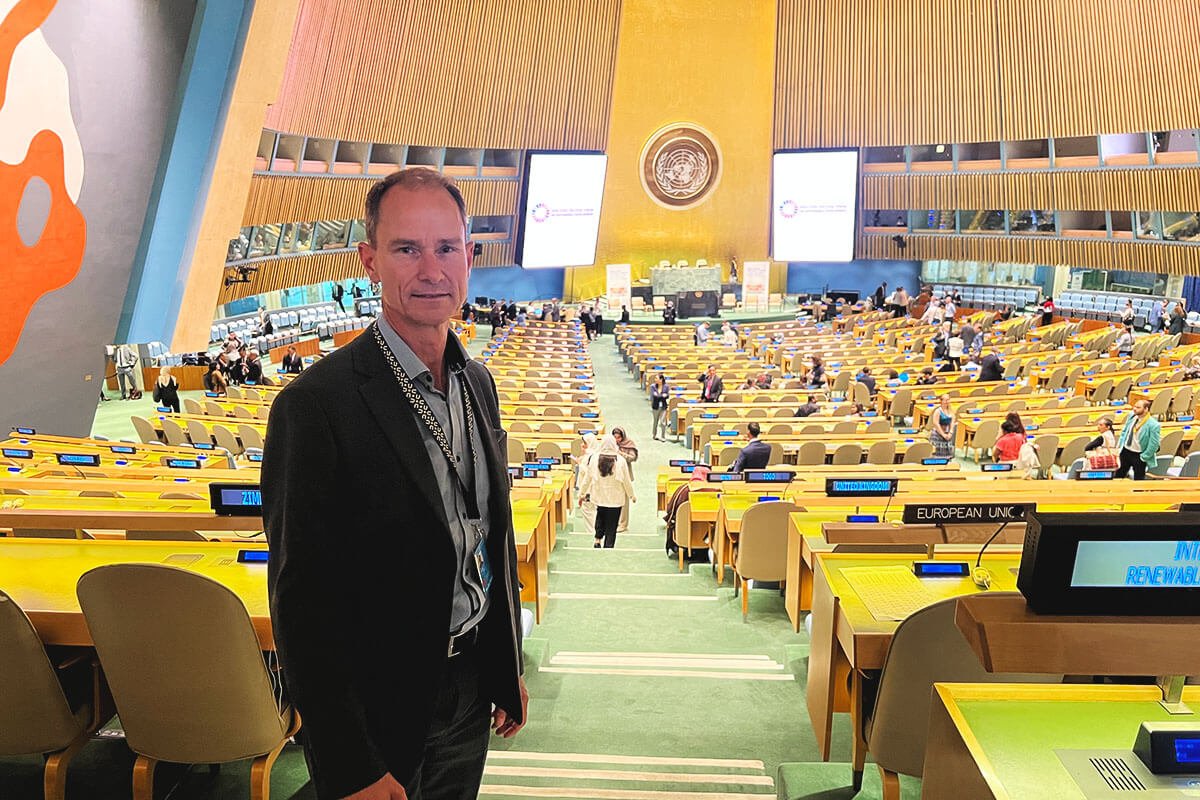At the UN High-Level Political Forum on Sustainable Development
There is hope within the field of sustainable energy production. Novatron's CEO Peter Roos had the honor of being one of the selected representatives of the Swedish delegation (led by Marie Ottosson, CEO at Sida) to the UN political High-Level Political Forum (HLPF) on Sustainable Development in New York on 10–19 July 2023.
"As the world is going through an urgent and rapid climate adaptation, Fusion Energy has the vast potential to be the much-needed green game changer, enabling our growing societies to transform our energy systems while avoiding virtually all the challenges connected to alternative and existing forms of energy production," said Peter Roos.
Peter Roos in the large UN assembly hall.
Recently, several breakthroughs have pushed large-scale fusion energy production closer to reality. Many of the more advanced projects are expected to connect to the power grid within the coming decade.
"Building on Sweden's rich legacy of advanced civilian nuclear research, Novatron Fusion Group and the NOVATRON concept is our contribution to the global fusion energy revolution," said Peter Roos.
Finding common solutions to humanity's biggest challenges
Peter Roos addressing the United Nations.
But no country, regardless of size and resources, can make the fusion energy transition happen on its own. States and international institutions need to join forces to ensure global access to cutting-edge technical know-how and put necessary conditions in place to facilitate energy transition innovation and fusion energy access in all corners of the world. That is what Agenda 2030 and the UN High-Level Political Forum on Sustainable Development are all about – finding common solutions to humanity's biggest challenges.
"Advancing fusion energy is a common interest, and strategies must be developed on national and regional levels. This includes access to technical expertise, investment in necessary infrastructure, and well-adapted rules and regulations," Peter Roos added.
Fusion energy will substantially contribute to the UN's 2030 Agenda for Sustainable Development, as well as helping to reduce the impact of geopolitical changes. The opportunities for global energy sufficiency are enormous.
Here are a few key takeaways according to Peter Roos:
Many of the world's countries are working hard to change their energy production to climate-friendly alternatives, but not at a satisfying pace.
Electrification is a global trend, but solutions are lacking to handle the scaleup to the level required by 2050, i.e. ten times more clean electricity than we produce today.
675 million people have no or limited access to electricity, and a large part of the world's population prepares its food with wood or fossil fuel.
Many, if not all of the seventeen areas covered by Agenda 2030, are directly or indirectly dependent on solving the energy issue.
There is little evidence that the targets set for 2030 will be met, but the salvation may lie in disruptive technologies that can make a dramatic difference and coordinated global funding.



